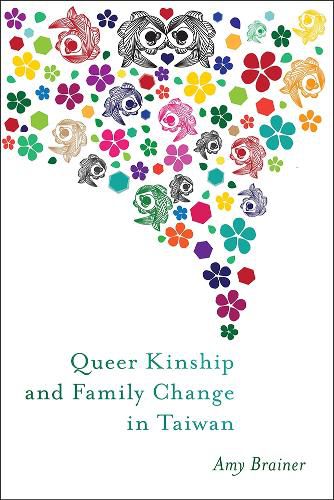Readings Newsletter
Become a Readings Member to make your shopping experience even easier.
Sign in or sign up for free!
You’re not far away from qualifying for FREE standard shipping within Australia
You’ve qualified for FREE standard shipping within Australia
The cart is loading…






Interweaving the narratives of multiple family members, including mothers, fathers, and siblings of her queer and trans informants, Amy Brainer analyzes the ways that families navigate their internal differences. In Queer Kinship and Family Change in Taiwan, Brainer looks across generational cohorts, with informants ranging in age from their twenties to their seventies, for clues about how larger social, cultural, and political shifts have materialized in people’s everyday lives. Her findings highlight the crucial importance of new parenting and family discourses, and enduring inequalities in the distribution of family work and resources for queer and heterosexual kin alike.
Brainer’s research takes her from political marches and support group meetings to family dinner tables in cities and small towns across Taiwan. She speaks with parents and siblings who vary in whether and to what extent they have made peace with having a queer or transgender family member, and queer and trans people who vary in what they hope for and expect from their families of origin. Across these diverse life stories, Brainer uses a feminist materialist framework to illuminate struggles for personal and sexual autonomy in the intimate context of family and home.
$9.00 standard shipping within Australia
FREE standard shipping within Australia for orders over $100.00
Express & International shipping calculated at checkout
Interweaving the narratives of multiple family members, including mothers, fathers, and siblings of her queer and trans informants, Amy Brainer analyzes the ways that families navigate their internal differences. In Queer Kinship and Family Change in Taiwan, Brainer looks across generational cohorts, with informants ranging in age from their twenties to their seventies, for clues about how larger social, cultural, and political shifts have materialized in people’s everyday lives. Her findings highlight the crucial importance of new parenting and family discourses, and enduring inequalities in the distribution of family work and resources for queer and heterosexual kin alike.
Brainer’s research takes her from political marches and support group meetings to family dinner tables in cities and small towns across Taiwan. She speaks with parents and siblings who vary in whether and to what extent they have made peace with having a queer or transgender family member, and queer and trans people who vary in what they hope for and expect from their families of origin. Across these diverse life stories, Brainer uses a feminist materialist framework to illuminate struggles for personal and sexual autonomy in the intimate context of family and home.